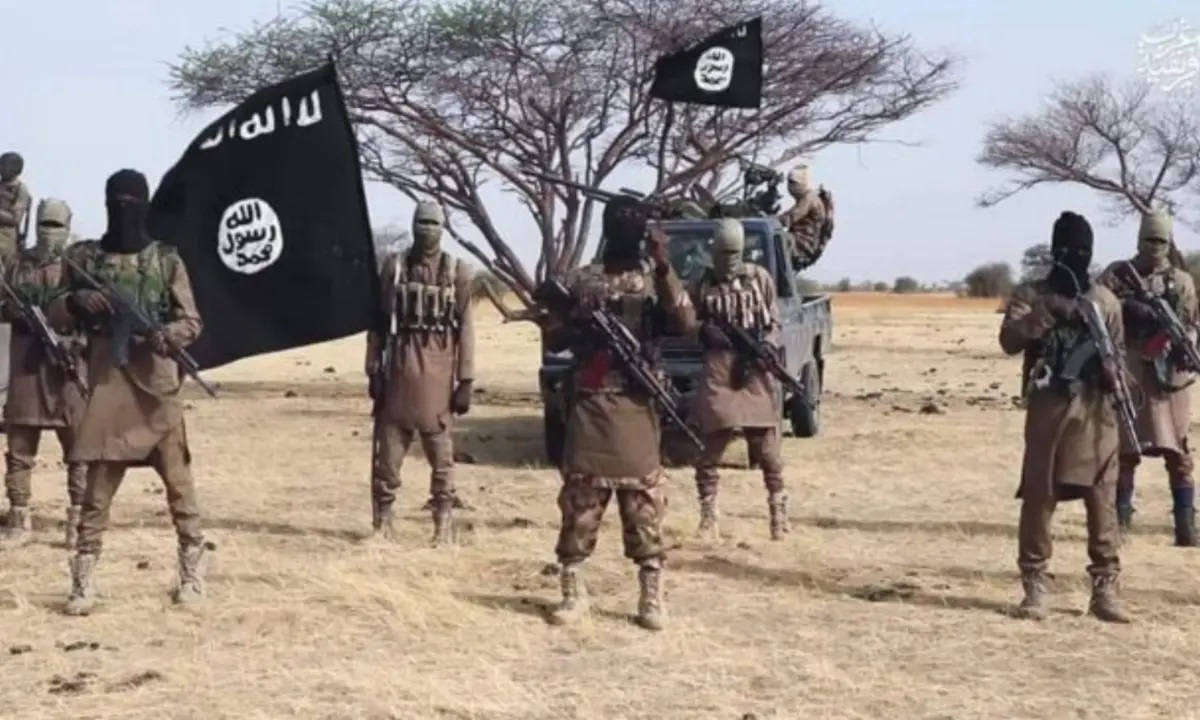Fierce clashes between Boko Haram and Islamic State West Africa Province (ISWAP) fighters in Nigeria’s northeast have reportedly left about 200 insurgents dead, according to intelligence, militia, and jihadist sources.
The deadly confrontation erupted on Sunday around Dogon Chiku, on the shores of Lake Chad, marking the latest round of infighting between the rival jihadist factions over territorial control and ideological supremacy.
According to credible intelligence reports, Boko Haram fighters launched a surprise dawn attack, using seven boats to assault ISWAP positions. Although the group lost four of its boats during the operation, the offensive proved catastrophic for ISWAP.
Boko Haram militants reportedly overran enemy camps, seized vital weapons, and inflicted heavy casualties. Only four Boko Haram fighters were confirmed dead, underscoring the tactical advantage of their surprise assault.
Eyewitnesses and local intelligence sources described scenes of chaos, with ISWAP fighters abandoning their posts, weapons, and even wounded comrades as they fled to nearby islands.
Security analysts believe the clash was triggered by renewed disputes over control of key supply routes and extortion points, reflecting the fierce competition for resources across the Lake Chad Basin, which spans Nigeria, Chad, and Niger.
Following the incident, security forces in Borno State were placed on high alert amid intelligence reports suggesting ISWAP may be planning a retaliatory strike within 24 hours.
Experts describe the confrontation as one of the deadliest internal clashes between the factions since their split in 2016, a rift that has fuelled persistent violence and weakened the broader insurgency but at immense cost to civilians.
“From the toll we got, around 200 ISWAP terrorists were killed in the fight,” said Babakura Kolo, a member of the Civilian Joint Task Force (CJTF), an anti-jihadist militia assisting the Nigerian military.
A former Boko Haram fighter, who has since renounced violence but continues to monitor jihadist activity in the region, corroborated the figure, saying that “around 200 ISWAP fighters were killed in the clashes,” with several weapons seized.
As the military intensifies surveillance operations, fear remains high among residents that ISWAP could target nearby communities in reprisal attacks. The ongoing rivalry between the two groups continues to pose a grave security threat to the region, where years of conflict have displaced millions and devastated livelihoods.
Farmers in Zamfara, Sokoto Decry Rising ‘Harvest Taxes’ by Bandits
Meanwhile, farmers in parts of Zamfara and Sokoto States have raised alarm over escalating levies and intimidation by armed bandits, who they say are imposing conditions on communities ahead of this year’s harvest season.
Despite favourable rainfall and good yields, residents say relentless attacks have turned farmlands into danger zones, heightening fears of worsening food shortages across northern Nigeria.
Villagers reported that the bandits have introduced what they describe as “harvest taxes,” demanding payments in cash or farm produce before allowing them to access or harvest their crops.
Community sources said armed groups have set up checkpoints around villages, where they collect levies and mete out punishment to those unable to pay.
“We are living under a parallel authority,” said a farmer from Tsafe Local Government Area of Zamfara State, who requested anonymity for security reasons.
“They gave us a timetable for when to go to our farms, how much to pay, and they also take part of our grains. Those who refuse are attacked or abducted.”
The worsening insecurity has forced many farmers to abandon their fields, even as crops are ready for harvest — a development experts warn could further undermine food security and increase hardship in the region.





